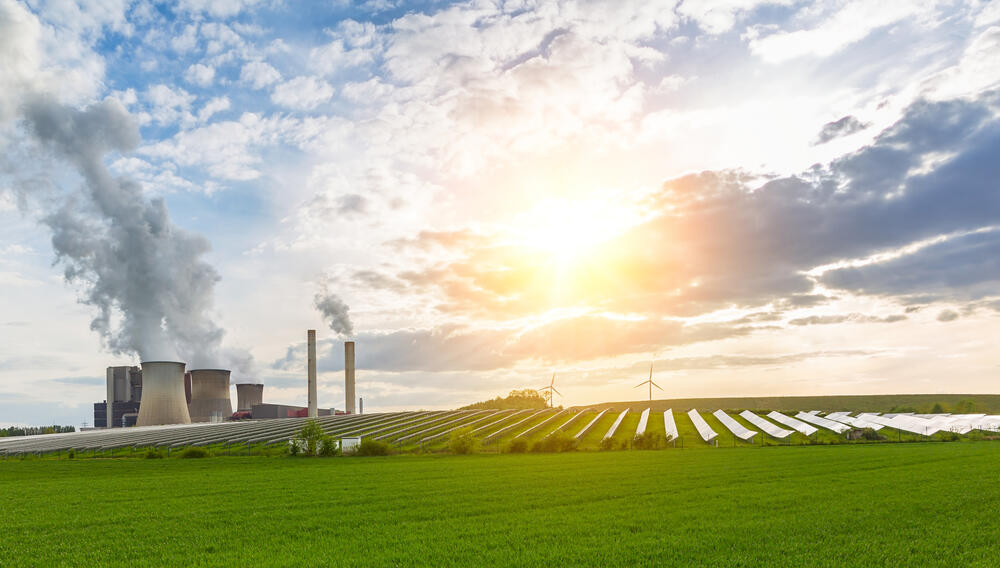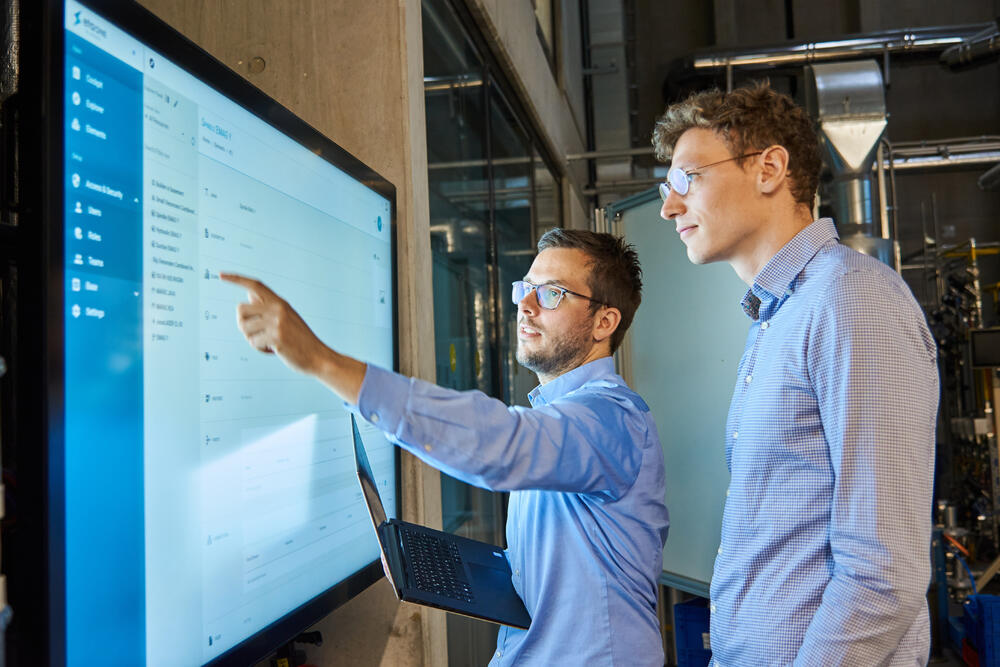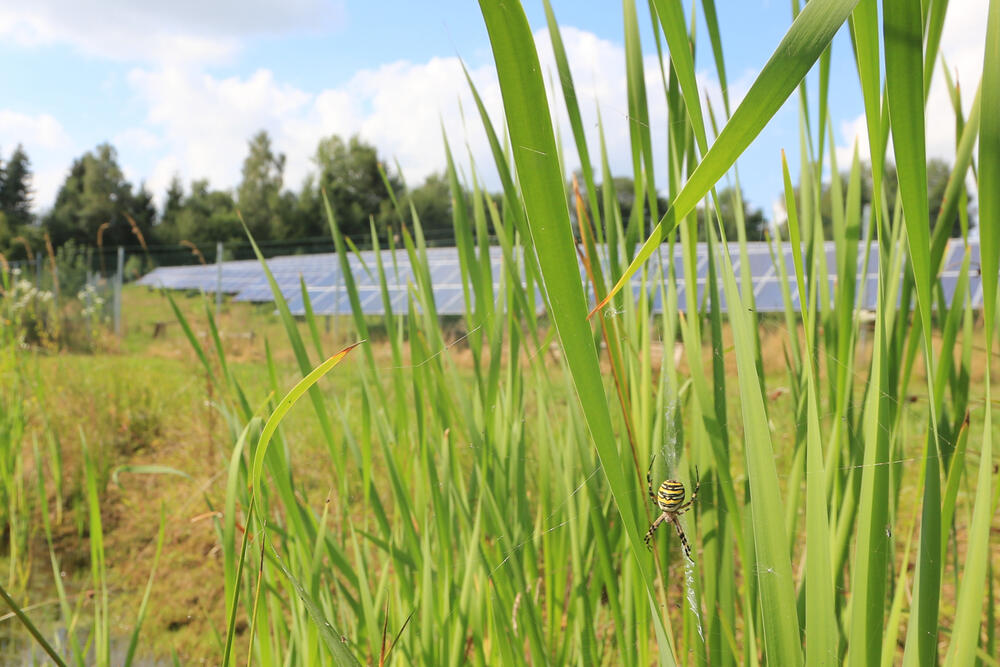DBU aktuell No. 1 | 2022 English
Information on Grant Support Activities of the German Federal Environmental Foundation (Deutsche Bundesstiftung Umwelt)
1.) Significantly more in less time - how can the energy transition succeed?
Germany is behind expectations: When publishing his opening climate protection report, Economics and Climate Protection Minister Robert Habeck emphasized, "The climate protection measures to date are insufficient in all sectors." Habeck called for significantly more to be done in less time and for the share of renewable energies to be increased to 80 percent by 2030. But how can the large-scale energy turnaround project for society as a whole be implemented in concrete terms? Through its more than 30 years of funding work, the DBU is contributing to this task with practical solutions and scientific findings. Currently, for example, with a record-breaking project: "We are currently funding the further development of so-called perovskite silicon tandem solar cells," reports Felix Gruber, head of the DBU's Environmental Technology Department and the DBU Energy Project Group. "At the Helmholtz Center in Berlin, these solar cells, which consist of two material systems, have set a new world efficiency record of nearly 30 percent on a laboratory scale."
Reliable framework conditions
According to Gruber, in addition to research institutions, it is especially small and medium-sized companies that drive new developments: "They recognize the opportunities for innovative products, processes and services from an early stage. For this, they need reliable and long-term framework conditions." A startup-friendly environment is also important, because many young companies stand for new approaches to a particular degree, Gruber said. For example, the DBU's startup funding supports etalytics GmbH, which aims to achieve energy savings of 20 to 50 percent in industrial companies through artificial intelligence.
The DBU sees energy efficiency as a fundamental building block of the energy transition. Here, the building sector also offers great potential. The DBU project „Modernisierungsbündnisse“ (Modernization Alliances) networked stakeholders for the modernization of the building stock in 23 communes across almost all federal states in order to motivate the owners of one- and two-family houses to take action. A follow-up project will start in April 2022.
Combining nature conservation and renewable energies
Dealing with land competition is another keyword in DBU energy transition funding. For example, the EULE project of regionalwerke, Bodenkirchen, shows how energy can be harvested and biodiversity increased at the same time (see DBU update 05/2020).
"As the DBU, we want to combine nature conservation and renewable energies," says Gruber, describing the foundation's position. In particular, the expansion of wind energy is repeatedly under discussion in this context. Funded by the DBU, the Department of Environmental Assessment and Planning at the Technical University of Berlin presented an analysis of the field of action wind energy. It describes the innovative approaches to environmentally and socially compatible wind energy development.
Acceptance through participation, competence through education
However, technical solutions alone are not enough to implement energy and climate protection measures. DBU department head Gruber: "Acceptance and utilization aspects must be considered from the very beginning." For the implementation of the energy turnaround, the DBU therefore promoted measures for planning participation and acceptance analysis: In addition, the foundation is involved in education, training and continuing education, for example, with the interdisciplinary doctoral college "Environmental-Social Issues of the Energy Turnaround" (see DBU update 09/2021).
For the topic of the energy transition as a whole, Gruber suggests a comprehensive view: "When expanding renewable energies, raw material issues must also be considered in the sense of a circular economy, as well as the preservation of biodiversity."
More project examples and the links to the projects mentioned here can be found in our German online edition.
Translated with www.DeepL.com/Translator (free version)





